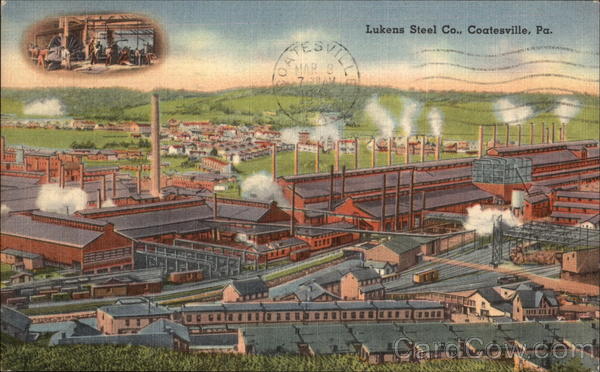
THE FIX: Coatesville has long been the primary coke supplier for Philly’s western suburbs. Local teens who move the crack bags and act as corner lookouts call their hometown “Cook Cokeville.” The town was once a major supplier of steel under the Lukens and later Bethlehem Steel banners; its mill even produced girders for the World Trade Center. The mill remains operational, owned now by Luxemburg conglomerate ArcelorMittal, and while its sprawling campus still dominates the landscape, it no longer drives the local economy as it once did. Crack cocaine replaced the steel. […] One benefit of the collapse of the steel industry was that as skilled and mobile workers moved away, the sagging economy drove down housing prices, making a quiet home in the country affordable even for poor families. Close to half of Coatesville’s population is African American, and many are relatively recent Philly transplants. Most of these ex-pats do prefer Coatesville’s comparative verdure to their blasted and blighted neighborhoods of origin back in the Brotherly Love. But many of urban poverty’s chronic social problems migrated with them like invisible stowaways. […] Coatesville’s story is hardly unique in Pennsylvania or, for that matter, anywhere in America. A new analysis of U.S. survey data by the Brookings Institution shows that the number of poor people in our nation’s suburbs jumped by more than half over the last decade, compared to our cities, which saw a one-quarter increase. The Great Recession and the foreclosure crisis have wreaked havoc with many middle-class Americans, knocking them down the income ladder, as indicated by the fact that two-thirds of the new suburban poor “materialized” from 2007 to 2010. Meanwhile, city budgets are being slashed, with police, firefighters, teachers, and social service providers laid off in large numbers—some to become poor themselves. “The whole political class is just getting the memo that Ozzie and Harriet don’t live here anymore,” Edward Hill, an urban-affairs expert at Cleveland State University, told The New York Times. MORE
